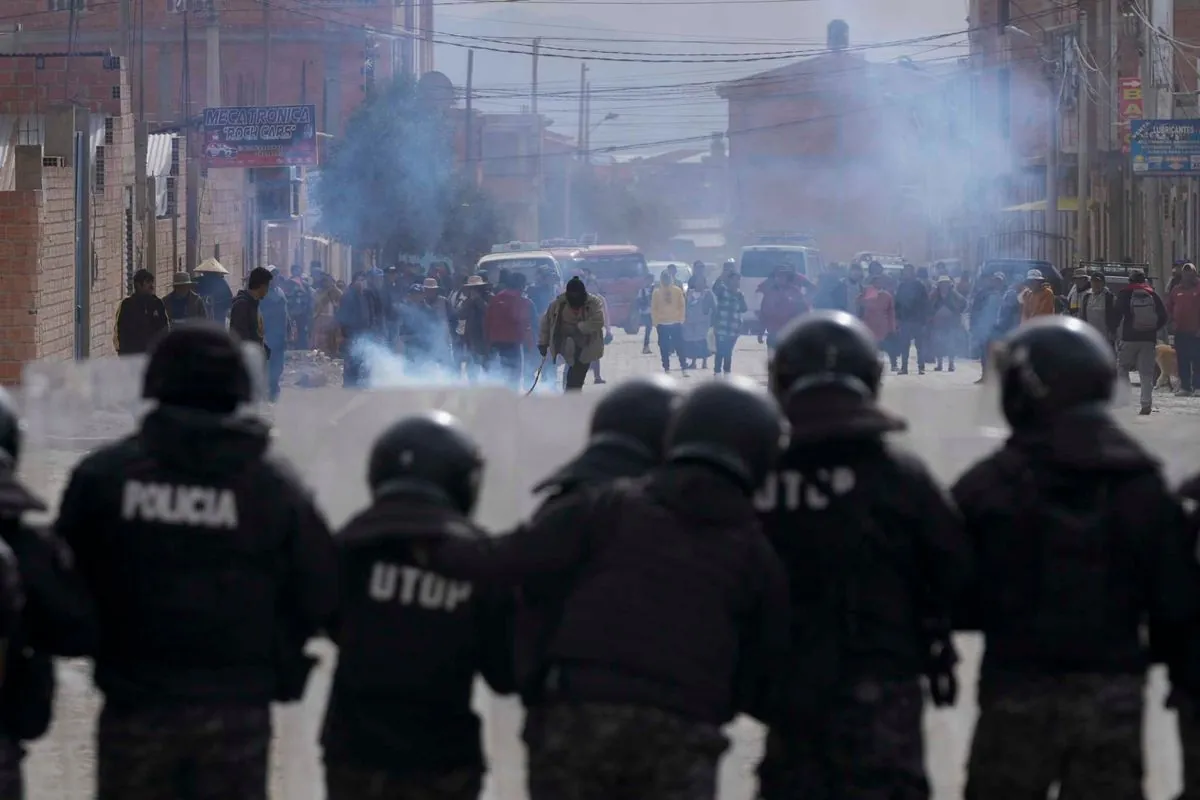In a recent display of Bolivia's escalating political tensions, supporters of former president Evo Morales clashed with pro-government forces in El Alto, the country's second-largest city. This confrontation, occurring approximately 5 years after Morales' controversial resignation, underscores the deepening divide within the Plurinational State of Bolivia.
The incident took place as thousands of Morales supporters were conducting a 190-kilometer march towards La Paz, the administrative capital. This march, dubbed the "March to Save Bolivia," reflects the ongoing power struggle between Morales and current President Luis Arce, both vying for leadership of the Movement for Socialism (MAS) party ahead of the 2025 presidential election.
Bolivia, a landlocked country in central South America with a population of about 11.8 million, has a history of political instability since its independence. Named after Simón Bolívar, a key figure in Latin American independence movements, the country has experienced numerous coups and periods of unrest throughout its history.
The recent clash in El Alto saw protesters and counterprotesters hurling firecrackers and stones at each other, while riot police deployed tear gas to disperse the crowds. The health ministry reported at least eight injuries resulting from the confrontation.
This event highlights the complex political landscape of Bolivia, a country rich in natural resources including minerals and natural gas. The nation's economy heavily depends on these exports, making political stability crucial for its economic well-being.
Morales, who came to power in 2006 as Bolivia's first Indigenous president, has retained significant support among poor and Indigenous Bolivians. During his tenure, he recognized the wiphala flag, representing indigenous peoples, as an official flag of Bolivia in 2009. This move resonated with many, as Bolivia has one of the largest indigenous populations in South America.
The ongoing political crisis has had far-reaching effects on Bolivia's economy and social fabric. The country, home to diverse ecosystems including parts of the Amazon rainforest, faces challenges in balancing development with environmental conservation. Additionally, Bolivia possesses significant lithium reserves, crucial for battery production, which adds another layer of complexity to its political and economic landscape.
As the march continues towards La Paz, tensions remain high. The city, situated near Lake Titicaca, the world's highest navigable lake, braces for potential further unrest. The marchers, led by Morales, have vowed to press on despite opposition from Arce's supporters.
"We are holding on until we reach La Paz, we want to tell the government that it has seven days to solve the massive problems we have in the country."
This ongoing situation reflects the broader challenges facing Bolivia, a country with a diverse climate ranging from tropical to polar due to its varied geography. As the nation approaches the 2025 election, the political landscape remains as complex and varied as its natural terrain, from the Bolivian Andes with some of the highest peaks in the Americas to the world's largest salt flat, Salar de Uyuni.
The coming days and weeks will be crucial in determining the trajectory of Bolivia's political future, as the country grapples with its internal divisions while striving for stability and progress.
